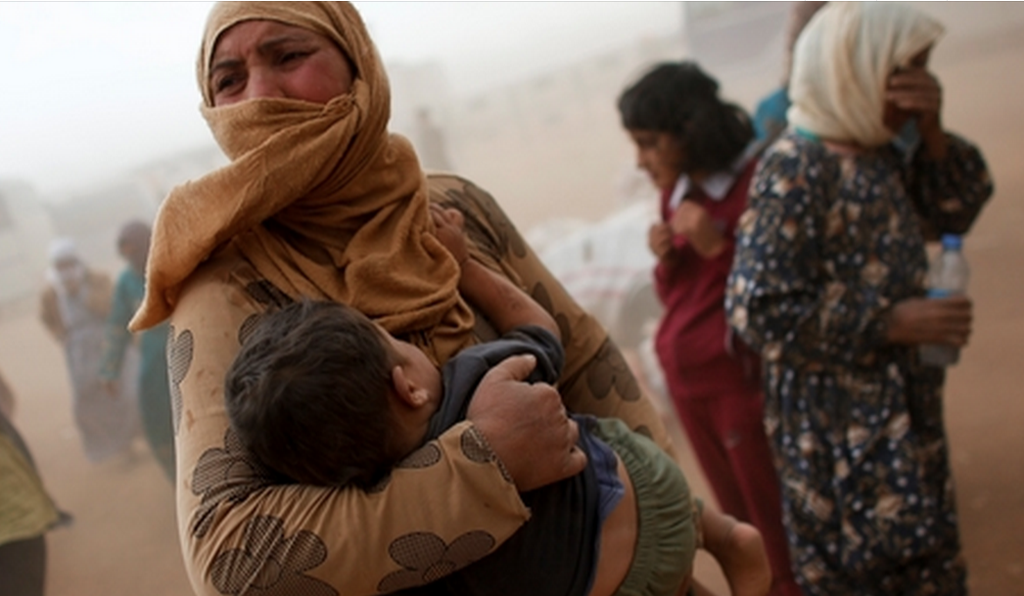The following information is based on the Amnesty International Report 2021/22. This report documented the human rights situation in 149 countries in 2021, as well as providing global and regional analysis. It presents Amnesty International’s concerns and calls for action to governments and others.
NORTH MACEDONIA 2021
Former government officials were brought to account. Conditions for detainees and prisoners failed to meet international standards. Hate speech was directed at ethnic minorities and LGBTI people, as well as women and girls, who were not protected from gender-based violence. Discrimination persisted against Roma and Albanians.
Background
The country’s efforts towards EU membership were blocked by Bulgaria, in a dispute over language, culture and Macedonia’s failure to recognize Bulgarian ethnicity. This – along with the failure to implement domestic reforms and poor local election results – contributed to Zoran Zaev’s resignation in December.
Accountability
Investigations continued into alleged serious crimes, including human rights violations, by former government ministers and officials.
Sašo Mijalkov, former head of the secret police, and 10 former police officers and employees were convicted in February for offences arising from widespread unlawful wire-tapping revealed in 2015.
In June, the former parliamentary speaker and two ministers were convicted for their role in organizing the April 2017 storming of parliament, when 100 people, including members of parliament, were injured.
Torture and other ill-treatment
In February, the European Court of Human Rights (ECtHR) struck out two complaints of suspicious prison deaths in 2017, after the government agreed a €12,000 settlement with the parents of a Roma man and with the sister of another. In both cases, ill-treatment was suspected.
In May the European Committee for the Prevention of Torture, following their 2020 visit, highlighted the chronic ill-treatment of suspects by police officers and other violations of detainees’ rights. They also criticized the authorities’ persistent failure to address systemic failings in prisons, including ill-treatment and inhumane and degrading conditions.
Freedom of expression
In December journalists and media workers urged the government to adopt measures announced in July increasing penalties for the increasing number of attacks on journalists and reducing fines for defamation.
Freedom of assembly
During a protest calling for accountability for the deaths of 14 people in a fire in a Covid-19 unit in Tetovo hospital on 8 September, five ethnic Albanians were detained for public order offences, two of them for “participation in a mob”. After 38 days’ detention they were sentenced to one year’s probation.
Violence against women and girls
The Law on Prevention and Protection from Violence against Women and Domestic Violence was adopted in January.
Misogynistic hate speech increased. Police failed to investigate complaints by women and girls whose images were, without their consent, among 7,000 shared by men on the social media platform Telegram. Proceedings for child pornography opened against two men in July. In April NGOs recommended a support package for women following domestic violence, and called for femicide to be a specific criminal offence.
Refugees’ and migrants’ rights
Almost 19,000 refugees and migrants transited through the country. Between January and September 388 people, including children, were arbitrarily detained in immigration detention centres as witnesses in 24 proceedings brought against smugglers. Between January and March alone, an estimated 4,000 refugees and migrants were pushed back into Greece, often after registration, many reporting abuse and ill-treatment. One asylum seeker was granted subsidiary protection.
From September, 407 Afghan citizens evacuated from Kabul arrived in North Macedonia prior to resettlement in the USA or Canada. They were granted a three-month visa and accommodated in hotels. By December, 76 Afghans had been resettled to Greece, France and Ireland.
Discrimination
In June, the Helsinki Committee reported a 49% increase in both incidents and prosecutions for ethnically motivated hate speech. The Commission for Prevention and Protection from Discrimination was not fully functional.
In April a gynaecologist was appointed to the clinic in Šuto Orizari, a Roma suburb in the capital, Skopje, following a complaint by 58 Roma women (assisted by the European Roma Rights Centre) who had been denied access to reproductive healthcare for over a year.
In June the Skopje Basic Court ruled that the Ministry of Health had discriminated against Roma drug users who were minors, mandating a specialized health unit to provide them with appropriate treatment and rehabilitation.
In June, the ECtHR found the authorities had failed to investigate a racially motivated assault by several police on a Roma man during a raid in Topana, Skopje, in 2013, requiring Macedonia to provide €3,000 compensation.
LGBTI people’s rights
Proposed amendments to the Civil Status Registration Act enabled transgender people to register their chosen gender. The Helsinki Committee reported a 31% increase in homophobic hate speech prior to the Skopje Pride in June.



